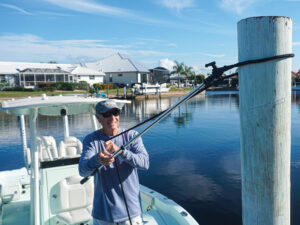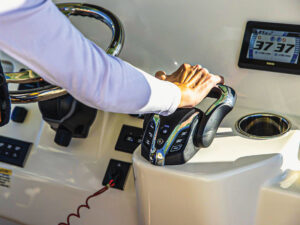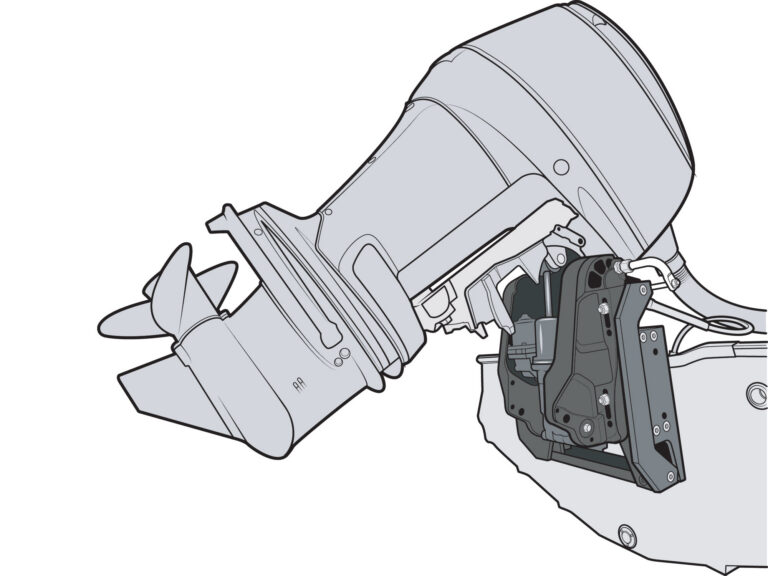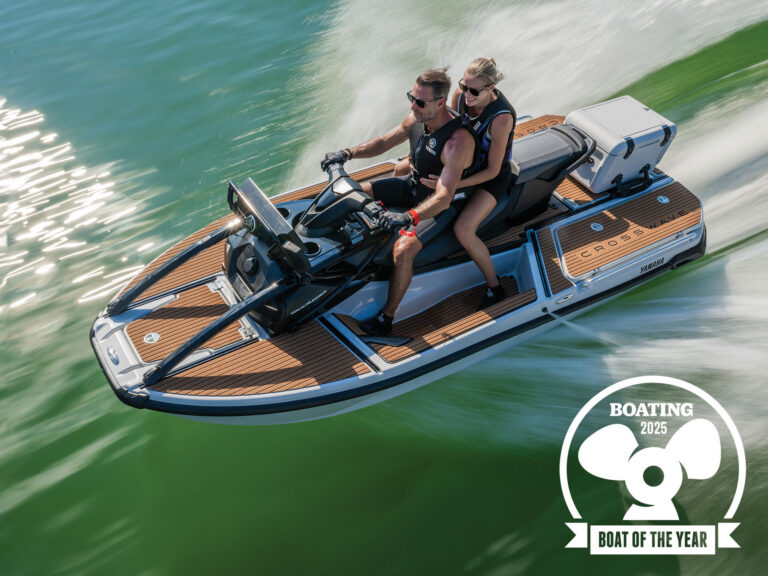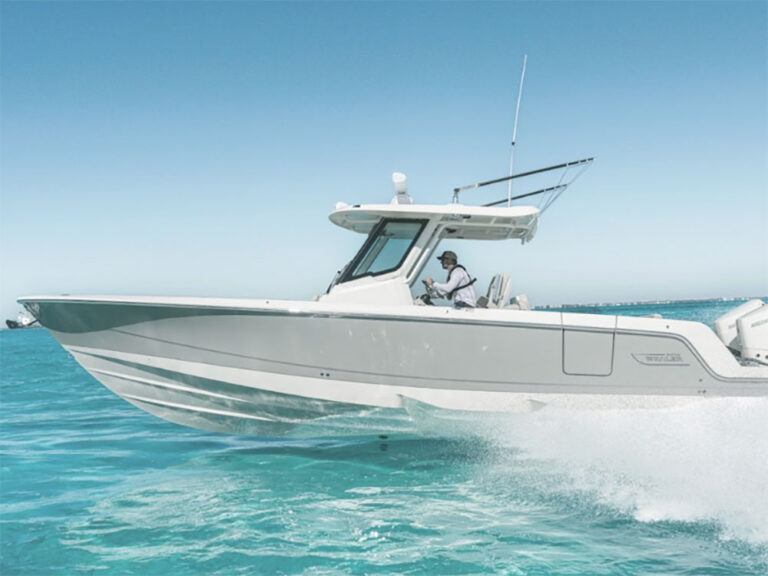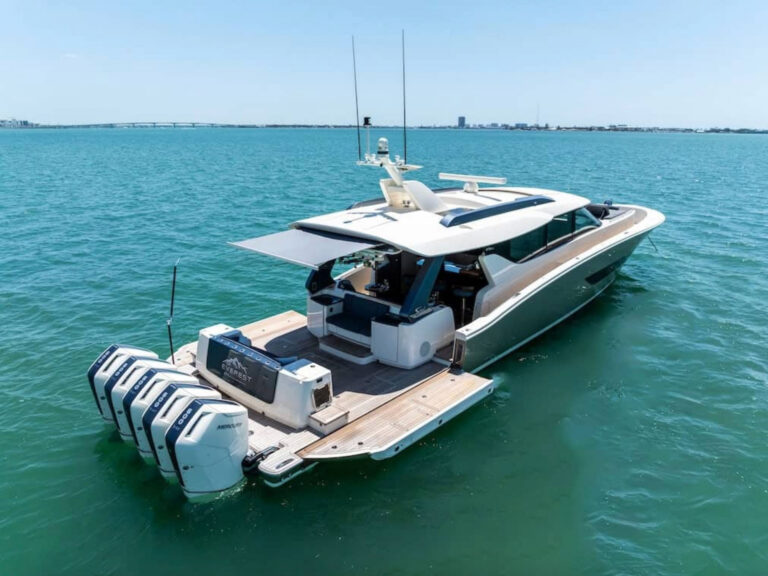
New boaters will wonder if they need to take a captain’s course, pass a boating license test, and fulfill any other safety requirements before they hit the water. This depends to some degree on where you live and what body of water you plan on visiting because different states have different regulations. That said, 45 out of the 50 states (and the District of Columbia) do mandate some form of boating safety education.
Article at a Glance:
- Different states have different requirements.
- Getting a boating license is usually seamless and easy.
- How to enhance safety beyond a basic course.
Boating License Requirements Vary by State
There was a time when getting a boating license meant sitting in a classroom and taking a test specific to your state. Today, however, an online course presented by Boat Ed or Boaterexam can fulfill the requirements wherever you live, and a free BoatU.S. Foundation course will as well in most states. These courses and boating license tests have been approved by the National Association of State Boating Law Administrators and are recognized by the US Coast Guard. Some states also offer in-class courses for people who want the opportunity to ask questions and interact with an instructor.
Are Boating Licenses and Safety Cards the Same Thing?
In some cases, yes, and in others, no. In states that require a boating license, going through a safety course is generally the requirement. In states that don’t have a boating license, you can still go through a safety course and get a boating safety card.
Timeline to Getting Your Boating License
Online boating safety courses are very straightforward but often take a minimum amount of education time. If you want to get a Florida boating license, for example, it will take at least five hours of online course education plus some time to take the final test. Again, minimum requirements can vary from state to state. After taking the course, you can apply for the boating license and receive it via mail or email.
– INVEST TO IMPRESS –
Safety Tip Provided by the U.S. Coast Guard
A boating course is a great way to gain confidence and boat-handling skills. A little practice now will make it look easy when everyone is watching.
Resources for Taking a Boater Safety Course
The BoatU.S. Foundation website is a great place to get started because it lists all the education requirements by state and the estimated course time for each, as well as offering free courses. You should also check your state’s regulatory requirements to make sure you check all the boxes when turning that safety course into a boating license.

Should Boaters Take Safety Courses Even If They Aren’t Required?
The short answer is yes. First and foremost, it will lead to safer boating. In some cases, taking a boating safety course can reduce your insurance premiums. And on top of that, you’ll become familiar with the boating rules and regulations in your state. So, even an experienced boater may want to take one, especially after moving to a different state where the local laws could be different than what he or she is accustomed to.
– CHECK THE FIT –
Safety Tip Provided by the U.S. Coast Guard
Follow these guidelines to make sure your life jacket looks good, stays comfortable and works when you need it.
Other Ways Boaters Can Improve Safety
Taking a basic boating safety course to get a boating license should be only the beginning of learning to be a safe boater. Being trained in first aid and CPR is an excellent idea, as is taking advanced coursework in navigation, marine weather and marine electronics. And naturally, going beyond the officially mandated safety gear by upgrading everything from life jackets to communications equipment will boost your safety margin. Some critical things to consider include:
- Vessel safety checks – It’s free to set up a vessel safety check with a USCG-approved vessel examiner.
- Life Jackets – Spend a bit more than the minimum to get better comfort, reflective patches, and pockets for strobe lights or whistles.
- Ditch Bags – Prep an emergency kit with items like signaling or communications devices, and fresh water to take with you in case you need to abandon ship.
- First-Aid Kits – Keep a waterproof marine first-aid kit on hand for treating victims in case of an accident.
- Radar – It can add substantial cost but will allow you to navigate more safely through fog and darkness.
- Emergency Signaling Devices – Satellite messengers (EPIRBs or PLBs) will help rescuers find you anywhere on the planet from the moment you press the SOS button.
– LOWER YOUR RATES –
Safety Tip Provided by the U.S. Coast Guard
Taking a boating safety course won’t just make you a better skipper. It could also help you save big on insurance.
Closing Remarks & FAQ
Boating safely is the key to having fun on the water for years on end, and a boating safety course is where this journey begins. Start by taking that course and passing the boating license test for your state, but don’t let the journey end there.
1. Does my state require a boating license?
Most do, but every state regulates boating licenses differently, so you’ll need to look up your specific state to be sure.
2. If I need to complete a boating safety course, where should I begin?
The BoatU.S. Foundation is an excellent resource. Plus, if one of its courses fulfills the requirements for your state, it’s free!
3. Are boating safety courses a good idea even if they aren’t required?
Yes, absolutely. Even experienced boaters are bound to benefit from a brush-up.
4. How else can I improve my boating skills beyond taking a course?
Plenty of classes are offered online and on the docks. That said, the best way to improve your boating skills is to go boating more—woohoo!
5. At what age can you drive a boat?
This varies by state and sometimes by boat type. Note that many states also have different age requirements for boats and personal watercraft.
6. At what age can you drive a PWC?
Again, it varies by state. There’s a table published by the Coast Guard detailing minimum ages by state, which covers both boats and PWC, but remember that regulations can change. You should verify the current minimum in the state you live in.
7. Is a boater’s license a captain’s license?
No, a boater’s license, more properly called a boater’s safety certificate, is not the same as a captain’s license. A captain’s license requires more knowledge, hundreds of hours of on-water experience, CPR training, passing a physical and passing a more rigorous test.


